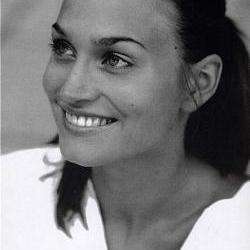As a longtime fan of both artists for decades, it pains me to have to file this review. Unfortunately, both recital halves pairing legendary jazz pianist Brad Mehldau and super-star Liedersänger Ian Bostridge at the Konzerthaus were dreadful, but for different reasons. First though, applause to the Konzerthaus for programming new music; I looked forward to hearing Mehldau present his composition.
The Folly of Desire’s concept is timely, with eleven poems by various poets focused on desire or consent, and Mehldau’s idiom – underpinning rhythmic motifs filtered through open, jazz-inspired harmonies – is effective. He also demonstrates sensitivity to the poetic structure, cadentially closing sections in line with 19th-century Romantic tradition. Choosing exclusively white, European male poets to set is also very much in line with centuries-old practice. Liederphiles in Vienna are accustomed to (white) male composers, poets and performers on stage — this season there are, again, zero female pianists featured.
The texts selected under the rubric of “desire”, however, were concerning. The first part, described by Mehldau as “a reflection of pure lust” centers on sexual violence, exclusively from the male perspective. While Goethe’s Ganymed is familiar enough to no longer shock, Bostridge singing – in jaunty ragtime – e.e. cummings’ “the boys i mean are not refined / they go with girls who buck and bite / they do not give a fuck for luck / they hump them thirteen times a night / one hangs a hat upon her tit / one carves a cross on her behind” requires a trigger warning. Leda and the Swan – Zeus raping and impregnating a married woman – features, as does Brecht’s violently graphic On the Seduction of Angels: “Angels are either not seduced at all or quickly / Just drag them into the entrance of the house / Put your tongue in their mouth and long / Under the skirt until they wet themselves / Face them to the wall, lift up their skirts / And fuck them.”
One hopes Mehldau was looking to unveil the brutality of sexual violence, but his is a reaction against the #metoo movement, which he referenced twice in his notes claiming, “an attempt to find a provisional consensus, is valuable... There should remain, though, a private space where one can just love someone and take without asking. This privacy has been a cherished freedom of liberal societies, but is under question now.” He continues, “lovers give themselves in a moment of trust – or they dare to take without asking. The fact that this giving and taking is without an established contract – there is risk – is what gives desire its wings.” Desire, then, is understood as exclusively male desire, with no perspective offered from those on the receiving end of this nonconsensual “taking”. The specifically male-gendered German text used in the Konzerthaus programme made this explicit.
Musically, Bostridge sang dispassionately. Vocally interesting, he colored wonderfully, hollowing out his sound or darkening it to great effect, but hardly committed to diction or sound. Initially, I wondered if this was an intentional contrast to Dichterliebe, but Schumann’s cycle was likewise unconvincing. Bostridge sounded embittered throughout and Mehldau was a fish out of water. The opening tempo was a harbinger of disaster, a tempo so plodding that ensemble was impossible. Mehldau did not move with Bostridge’s breath, abruptly changing tempo seemingly randomly. He is not an accompanist; his voicing interfered acoustically or offered little support, and he played sloppily.
The best musicianship happened in the encores with Schubert’s Nacht und Träume. To match another brutally slow introduction, Bostridge dug deep and delivered gorgeous lines, and Mehldau improvised out of it with a genius transition into Night and Day, thrilling throngs of fans. I left after the third jazzy encore, Ella Fitzgerald’s These Foolish Things; Bostridge snarling the final “these foolish things, remind me of you” was enough misogyny for one evening.




